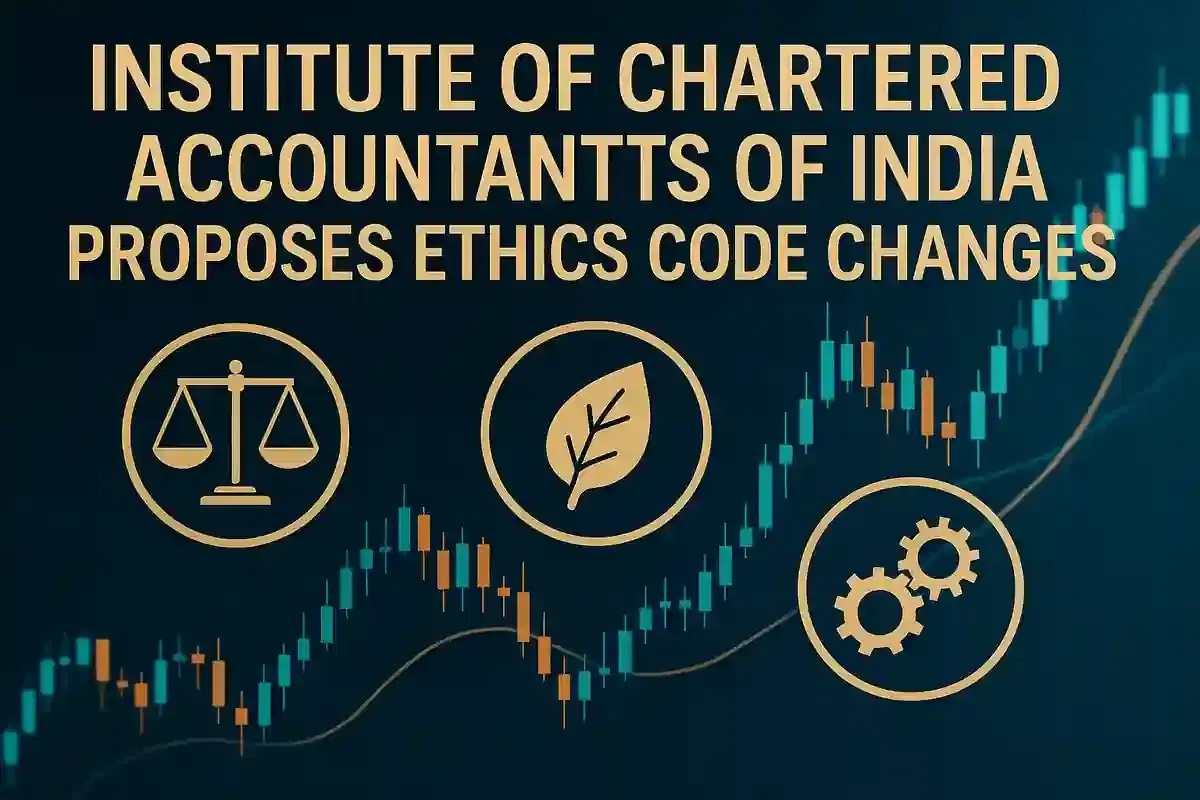ICAI Proposes Major Ethics Code Overhaul: Focus on Sustainability, Audit Independence, and Multi-Disciplinary Firms
Economy
|
29th October 2025, 3:28 PM

▶
Short Description :
Detailed Coverage :
The Institute of Chartered Accountants of India (ICAI) has initiated a significant overhaul of its Code of Ethics, aiming to support the government's vision of developing large, multi-disciplinary domestic professional services firms. The proposed changes cover several critical areas including new standards for sustainability assurance, enhanced audit independence, adjusted fee dependency limits, and updated advertising practices.
A new chapter, 'Ethics Standards for Sustainability Assurance,' is proposed to guide practitioners in providing assurance on sustainability reports, drawing from international standards. The terminology will also shift from 'professional accountant' to 'Chartered Accountant' for clarity. Amendments to Corporate Form guidelines aim to permit a broader range of services such as forensic accounting, social impact assessment, CSR impact analysis, and artificial intelligence services, alongside allowing website development.
Furthermore, the ICAI proposes stricter auditor independence rules for Public Interest Entities (PIEs), such as listed companies, prohibiting auditors from providing non-audit services to the same entity. This responds to concerns raised by the National Financial Reporting Authority (NFRA) regarding auditor independence. The fee dependency threshold for PIEs is raised to 20%, and the definition of PIE is expanded to include entities whose primary function is public deposit taking.
Impact: These changes are expected to significantly enhance corporate governance and audit quality in India. They will facilitate the formation of larger, more integrated professional services firms capable of offering a comprehensive suite of services, thereby increasing India's competitiveness on the global stage. The deadline for submitting suggestions on the Exposure Drafts is November 26.
Difficult Terms: Sustainability Assurance: A process where an independent third party, like a Chartered Accountant, examines and provides an opinion on a company's sustainability reports, ensuring accuracy and reliability. Audit Independence: The principle that auditors must remain unbiased and free from conflicts of interest when conducting audits, ensuring the integrity of their findings. Fee Dependency: A situation where a significant portion of an audit firm's revenue comes from a single client, potentially compromising independence. Multi-Disciplinary Partnership Firms: Firms that combine professionals from various disciplines (e.g., accounting, law, consulting) under one roof to offer a wide array of services. Public Interest Entities (PIEs): Entities like listed companies, banks, or insurance firms whose failure could affect a large number of stakeholders, requiring higher standards of oversight and governance. National Financial Reporting Authority (NFRA): An independent regulatory body in India that oversees the accounting and auditing profession, setting standards and ensuring compliance. Insolvency Professional Entities (IPEs): Entities registered with the Insolvency and Bankruptcy Board of India (IBBI) to provide insolvency resolution services. Resolution Vehicle Entities (RVEs): Entities formed as part of the insolvency resolution process to manage and resolve stressed assets.